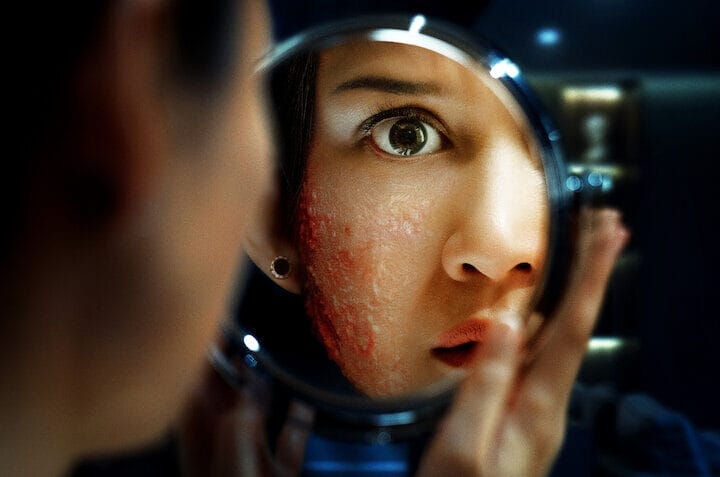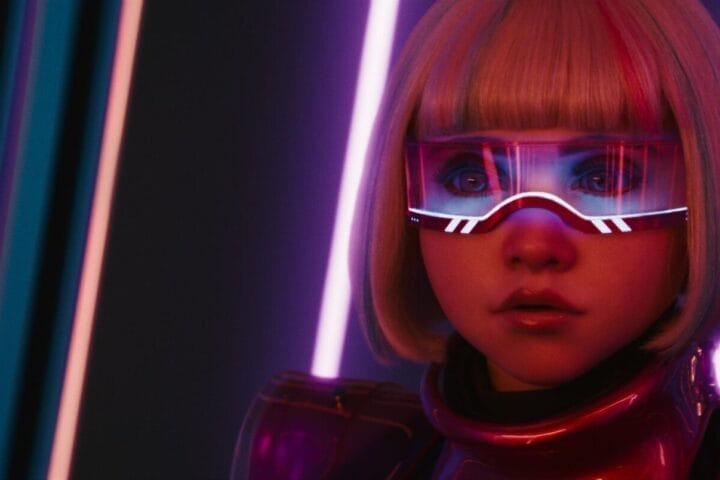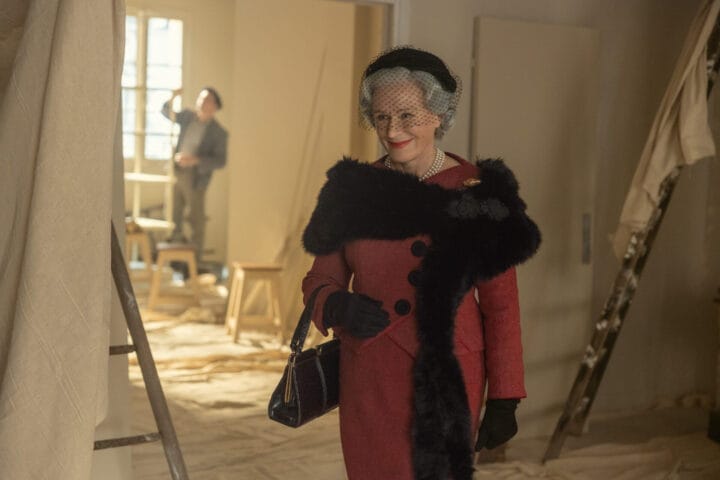Following BAFTA-nominated turns in ‘Saltburn’ and ‘Priscilla,’ the Australian actor takes on Frankenstein’s Monster and Heathcliff, cementing his status as a leading man of his generation.
Hollywood’s Reigning Heartthrob, Redefined
In the fast-moving landscape of modern Hollywood, few stars have ascended as rapidly or as compellingly as Jacob Elordi. The Australian actor, initially catapulted to global fame through a teen streaming phenomenon, has navigated the often-treacherous path from heartthrob status to critically acclaimed performer. His recent work, particularly his lauded turns as Elvis Presley in Sofia Coppola’s Priscilla and the aristocratic Felix Catton in Emerald Fennell’s Saltburn in 2023, has not only showcased remarkable versatility but also earned him significant industry recognition, including a BAFTA nomination for Best Supporting Actor for Saltburn.
Now widely regarded as one of Hollywood’s reigning heartthrobs and a definitive sex symbol for Generation Z, Elordi’s trajectory offers a fascinating look at contemporary stardom. His journey exemplifies how initial, massive platform success – even from projects met with critical skepticism – can be strategically leveraged into opportunities for artistically ambitious work. From the immense, if debated, visibility gained via Netflix’s The Kissing Booth series emerged the chance to audition for and star in HBO’s boundary-pushing drama Euphoria. Success there, demonstrating a darker, more complex range, subsequently attracted the attention of filmmakers like Coppola and Fennell. This progression highlights a deliberate navigation from the machinery of streaming fame towards the realm of critically recognized artistry, a path increasingly trod by young actors today. His public image, undeniably shaped by his looks and early roles, now coexists with a clear pursuit of challenging, often intense characters, creating a captivating duality that defines his current moment.
Brisbane Roots: Forging an Actor
Jacob Nathaniel Elordi was born on June 26, 1997, in Brisbane, Queensland, Australia. His background was firmly working-class; his father, John, a house painter who painstakingly built the family home over 13 years, and his mother, Melissa, primarily a stay-at-home mom who also worked in the cafeteria at Elordi’s school. Jacob is the youngest of four children, with three older sisters. His father, John, emigrated from the Basque Country at age eight with very little money, a heritage Elordi is proud of and has taken care to clarify, correcting online sources that listed his descent as Spanish rather than Basque. Elordi credits his father’s hard work and resilience as deeply influential, calling him a “totem of the kind of man that I would like to be”.
His interest in performing sparked early. Around age 12, he began participating in school musicals, starring in productions like Seussical (as the Cat in the Hat) and Charlie and the Chocolate Factory. He also took on the role of Oberon, King of the Faeries, in Shakespeare’s A Midsummer Night’s Dream. This foray into theatre wasn’t without challenges; he faced some homophobic bullying from peers for his involvement in plays. However, rather than deterring him, these experiences seemed to foster resilience. Elordi has spoken about developing an “abundance of confidence” from being able to excel in both sports (he was a keen rugby player) and theatre. This period likely solidified his commitment to acting as a form of self-expression, a path encouraged by his mother. He found inspiration in actors like Marlon Brando, Steve McQueen, and Daniel Day-Lewis, but particularly in fellow Australian Heath Ledger, especially his transformative performance in The Dark Knight.
He attended private all-boys Catholic secondary schools, St Kevin’s College in Melbourne and St Joseph’s College, Nudgee in Brisbane, environments where he later admitted feeling “deeply unsettled” and “barely finished”. A significant back injury sustained during a rugby match effectively ended his athletic pursuits, pushing him more definitively towards acting. He began practicing an American accent at age 14, initially modeling it after Vin Diesel, and even briefly attempted modeling at his mother’s suggestion aged 15, only to be told he was too tall for sample sizes. Reading Samuel Beckett’s Waiting for Godot in a drama class at 15 proved a pivotal moment, cementing acting as his passion, or as he described it, his “church”. This blend of a working-class background, his father’s immigrant experience, and education within potentially alienating private school settings may have contributed to a complex social awareness, perhaps informing his later ability to portray characters navigating disparate worlds of privilege and struggle.
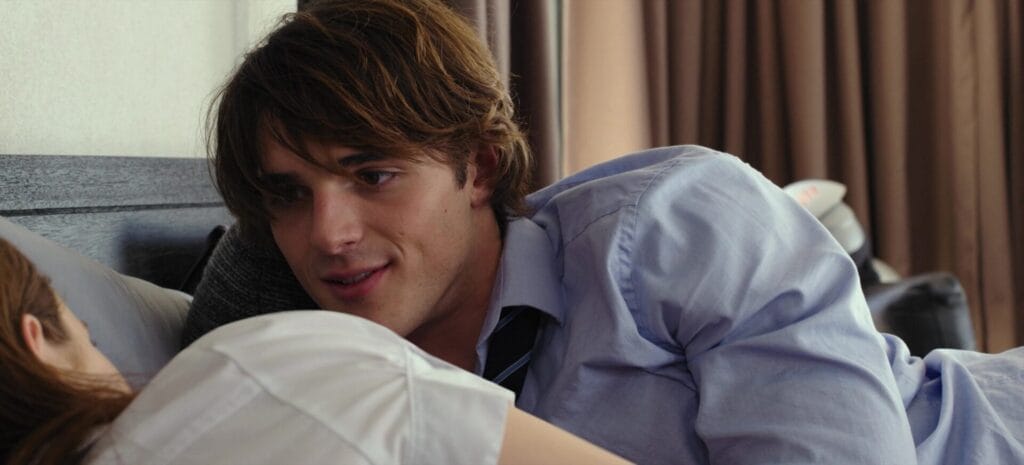
The Leap to LA and the ‘Kissing Booth’ Phenomenon
Driven by his acting ambitions, Elordi moved to Los Angeles in 2017. His initial foray into Hollywood was modest: an uncredited role as an extra, a Redcoat, in Pirates of the Caribbean: Dead Men Tell No Tales. His first credited role came in the Australian film Swinging Safari (originally titled Flammable Children) in 2018, playing Rooster.
The turning point arrived swiftly and decisively with his casting as Noah Flynn, the quintessential “bad boy jock” love interest, in the Netflix romantic comedy The Kissing Booth (2018). For the role, he even learned how to ride a motorcycle. Upon its release, the film became a runaway success for the streaming giant, ranking among its most-watched titles of 2018 despite largely negative reviews from critics. It instantly transformed Elordi from an unknown newcomer into a global teen idol. He reprised the role in two sequels, The Kissing Booth 2 (2020) and The Kissing Booth 3 (2021).
However, the reality of this sudden fame was complex for Elordi. He later candidly expressed his reservations about the franchise, admitting he hadn’t wanted to make the films initially but took the job out of necessity. He described the movies as “ridiculous” and “an escape,” fearing they represented a Hollywood “trap” where actors might compromise artistic integrity for commercial success. He pushed back against accusations of being “pretentious” for voicing these concerns, arguing for the importance of caring about the quality of one’s work. He even recalled “going to war” on set, unsuccessfully, to have his character smoke cigarettes as depicted in the source novel, feeling it was dishonest to sanitize the “bad boy” image for young audiences. The intense objectification and overnight celebrity status that came with the role were deeply unsettling; he described feeling like a “poster” or “billboard” and “so far from myself” that he considered quitting acting altogether.
The period between the first Kissing Booth film and his next major role was marked by financial instability. Elordi revealed he had very little money, sometimes sleeping in his 2004 Mitsubishi on Mulholland Drive or couch-surfing at friends’ places. His audition for HBO’s Euphoria came at a critical juncture; he considered it potentially his last attempt before having to return to Australia to regroup and earn money. This period of struggle underscores the precariousness of his situation before his next career-defining role. His later public criticism of the Kissing Booth films can be seen as a strategic move to redefine his image, signaling to the industry and audiences his desire for more substantive, artistically driven work, effectively distancing himself from the genre that made him famous.
The ‘Euphoria’ Effect and Critical Breakthrough
Landing the role of Nate Jacobs in Sam Levinson’s provocative HBO teen drama Euphoria in 2019 marked a crucial pivot in Jacob Elordi’s career. The series, a remake of an Israeli show, quickly gained critical acclaim and notoriety for its unflinching portrayal of modern adolescence, tackling themes of addiction, trauma, identity, and sexuality. Elordi’s character, Nate, stood in stark contrast to the charming, if rebellious, Noah Flynn. Nate Jacobs is the show’s primary antagonist: a popular high school football player grappling with deep-seated psychological issues stemming from a toxic family environment, particularly his abusive father.
Elordi’s portrayal of Nate – described by the actor himself as a “narcissist” and “sociopath” and by critics as complex, menacing, and manipulative – became a standout element of the series. It allowed him to showcase a dramatic range far beyond his previous work, delving into themes of toxic masculinity, repressed desires, and simmering violence. The performance garnered significant attention and praise, with co-star Zendaya and creator Sam Levinson commending his depth and dedication. Critics recognized it as an “impressive career pivot” and his true breakout role. While he wasn’t nominated for an Emmy, a fact lamented by some fans and commentators, he did receive Audience Choice Award nominations for Best Actor from the Australian Academy of Cinema and Television Arts (AACTA) in 2022.
Euphoria‘s cultural impact was immense, sparking widespread discussion about the issues it depicted. Elordi’s nuanced and often terrifying performance as Nate was central to these conversations, providing a complex, if disturbing, lens through which audiences could examine contemporary issues of masculinity, mental health, and the consequences of trauma. The role effectively dismantled the simpler “bad boy heartthrob” archetype associated with The Kissing Booth, revealing an actor capable of significant depth and darkness, paving the way for more challenging opportunities with respected filmmakers.
Cementing Stardom: ‘Priscilla’ and ‘Saltburn’
The year 2023 proved to be transformative for Jacob Elordi, solidifying his transition from popular television star to critically recognized film actor with standout roles in Priscilla and Saltburn.
In Sofia Coppola’s Priscilla, Elordi took on the daunting task of portraying Elvis Presley, opposite Cailee Spaeny in the title role. The film, based on Priscilla Presley’s 1985 memoir Elvis and Me, offered a more intimate and often darker look at the iconic relationship from Priscilla’s perspective, exploring themes of grooming, control, and isolation. Coppola selected Elordi for his inherent “magnetism” and “charisma,” qualities essential for embodying the King of Rock and Roll. Elordi approached the role with intense preparation, delving into documentaries and biographies while deliberately avoiding Baz Luhrmann’s recent Elvis biopic to ensure an original interpretation. Taking on such an iconic figure so soon after Austin Butler’s Oscar-nominated performance was a bold move, demonstrating Elordi’s confidence and ambition. While the film itself received mixed-to-positive reviews, Elordi’s performance was frequently praised for capturing both the charm and the troubling aspects of Presley’s persona, earning him a People’s Choice Award nomination for Drama Movie Star.
His final release of 2023 was Emerald Fennell’s Saltburn, a provocative psychological thriller that became a viral sensation, particularly after its release on streaming platforms. Elordi played Felix Catton, an effortlessly charming, wealthy, and aristocratic Oxford University student who becomes the object of obsession for Barry Keoghan’s character, Oliver Quick. Elordi’s portrayal of Felix garnered widespread critical acclaim. He was hailed as “a revelation” and the film’s “secret weapon,” with many critics deeming it a star-making performance. This role led to the most significant award recognition of his career to date: a nomination for the BAFTA Award for Best Actor in a Supporting Role. He was also nominated for the BAFTA Rising Star Award and received nods from AACTA International Awards and the People’s Choice Awards for his performance.
The back-to-back releases of Priscilla and Saltburn created a powerful narrative in late 2023. They showcased Elordi’s impressive range across vastly different genres and character types – from embodying a real-life global icon with a Southern American accent to portraying a fictional British aristocrat steeped in privilege and ambiguity. This concentrated display of versatility, culminating in major award nominations, firmly cemented his status as a serious dramatic actor capable of anchoring complex, auteur-driven projects.
Expanding Horizons: Recent and Ambitious Future Projects
Building on the momentum of 2023, Jacob Elordi’s recent and upcoming projects demonstrate a clear commitment to diverse, challenging roles and collaborations with esteemed filmmakers. Beyond Priscilla and Saltburn, his 2023 slate included playing a British film actor named Ian in Sean Price Williams’ indie drama The Sweet East and portraying the 19-year-old serial killer Bobby Falls in the crime thriller He Went That Way, on which he also served as an executive producer.
In 2024, he starred as the younger version of Richard Gere’s character, Leonard Fife, in Paul Schrader’s meditative drama Oh, Canada. Based on Russell Banks’ novel Foregone, the film premiered at the Cannes Film Festival and explores themes of memory, mortality, and regret. Despite critics noting the physical dissimilarity between Elordi and Gere, Elordi’s performance involved careful study of Gere’s mannerisms. Also in 2024, he starred as Julius in On Swift Horses, a period drama directed by Daniel Minahan, adapted from Shannon Pufahl’s novel. Premiering at the Toronto International Film Festival, the film explores queer love and repression in the 1950s, with Elordi playing the wayward brother-in-law to Daisy Edgar-Jones’ character, Muriel, and finding a secret romance with Henry, played by Diego Calva. Elordi, also an executive producer on this film, received praise for his sensitive portrayal and chemistry with Calva.
Looking ahead, Elordi is set to lead the Australian miniseries adaptation of Richard Flanagan’s Booker Prize-winning novel, The Narrow Road to the Deep North, playing surgeon and former POW Dorrigo Evans. This project marks a significant return to his home country for a major production, something he has described as a long-held dream. While the future of Euphoria Season 3 remains somewhat uncertain amid reports of script rewrites, Elordi confirmed in early 2025 that he had filmed initial days and was excited about the direction.
Perhaps his most anticipated upcoming roles involve tackling two iconic figures of literature. He will star as Frankenstein’s Monster in Guillermo del Toro’s Frankenstein for Netflix, set for release in November 2025. Elordi stepped into the role after Andrew Garfield departed due to scheduling conflicts, joining a cast that includes Oscar Isaac as Victor Frankenstein and Mia Goth. Following that, he reunites with Saltburn director Emerald Fennell to play Heathcliff opposite Margot Robbie’s Catherine Earnshaw in a new adaptation of Emily Brontë’s Wuthering Heights, scheduled for a February 2026 release. Elordi was reportedly planning a break from acting before Fennell offered him the role.
These choices – working with auteurs like Schrader, del Toro, and Fennell (twice), and embodying complex literary archetypes like Frankenstein’s Monster and Heathcliff – signal a deliberate strategy. He is prioritizing artistic merit and challenging material, building a legacy beyond contemporary fame. His decision to turn down an audition for Superman, deeming the role “too much” or “too dark” for his current interests, further underscores his focus on character-driven, artistically ambitious projects over potentially lucrative but conventional blockbuster fare.
The Elordi Effect: Influence Beyond the Screen
Jacob Elordi’s rising profile extends beyond his film and television roles into the realms of fashion and popular culture. He has emerged as a significant style influence, particularly for his generation. Standing at an often-remarked-upon 6’5″, his off-duty style often blends comfortable staples with high-fashion pieces.
Most notably, Elordi has garnered attention for frequently incorporating designer handbags into his wardrobe – pieces traditionally associated with womenswear. His collection includes coveted items like the Fendi Baguette, Bottega Veneta’s Padded Cassette and Andiamo bags, and pieces from Celine, Louis Vuitton, Burberry, Chanel, and Valentino. This confident embrace of accessories challenges conventional male celebrity style norms and contributes to broader conversations about gender fluidity in fashion. His affinity for high fashion led to his appointment as a brand ambassador for Italian luxury house Bottega Veneta. He has fronted their campaigns, such as the travel-themed “Going Places” shot by photographer Alec Soth, and is a regular fixture at their fashion shows. He has also been associated with other major brands, including serving as the face of Hugo Boss’s Boss The Scent fragrance in 2022 and partnering with Swiss watchmaker TAG Heuer.
His public persona is further shaped through high-profile interviews with publications like GQ, talk show appearances, and his hosting stint on Saturday Night Live in January 2024. While a significant milestone, his SNL episode received mixed-to-negative reviews, with some critics suggesting it relied too heavily on jokes about his height and good looks. This reception highlights the persistent tension between the public’s perception of him as a “heartthrob” – an image stemming partly from his early roles and undeniable looks – and his own clear desire to be recognized primarily for his acting craft, a discomfort he has voiced previously. His relationships, including those with former co-stars Joey King and Zendaya, model Kaia Gerber, and influencer Olivia Jade Giannulli, have also been subjects of intense media scrutiny and public interest.
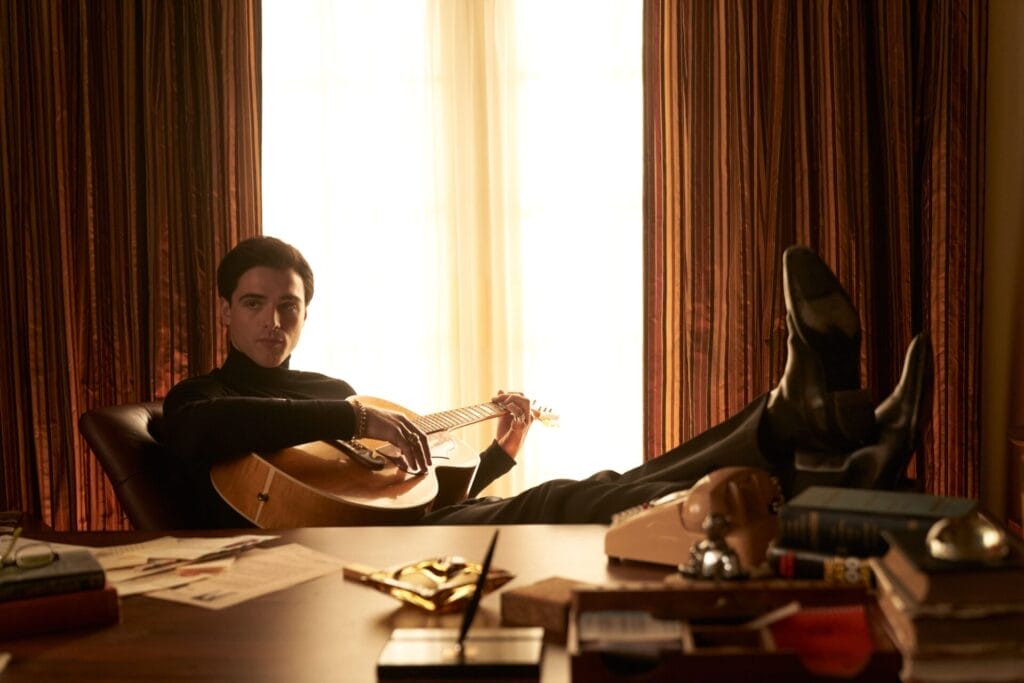
An Actor Coming Into His Own
Jacob Elordi’s career trajectory represents a compelling narrative of artistic evolution in the modern entertainment industry. From his beginnings as an aspiring actor in Brisbane, through the explosion of global fame via Netflix’s The Kissing Booth, to his current status as a critically respected performer headlining projects by visionary directors, his journey has been marked by deliberate choices and a clear pursuit of challenging work.
The transition was significantly catalyzed by his complex and lauded portrayal of Nate Jacobs in Euphoria, which allowed him to shed the limitations of his initial typecasting. His subsequent roles in Priscilla and Saltburn further demonstrated his range and commitment, culminating in prestigious award nominations, including a BAFTA nod, that solidified his standing.
Now, with eagerly anticipated performances as iconic literary figures like Frankenstein’s Monster and Heathcliff on the horizon, Elordi seems poised to build upon his success. His collaborations with acclaimed filmmakers like Sofia Coppola, Emerald Fennell, Paul Schrader, and Guillermo del Toro underscore his focus on artistic merit. Simultaneously, his influence extends into fashion, where his choices, particularly his embrace of handbags, challenge traditional norms and solidify his status as a contemporary style icon.
Jacob Elordi’s path serves as a modern case study in navigating the complexities of fame. He has successfully leveraged initial, perhaps even unwanted, mass visibility into a career increasingly defined by artistic ambition, critical respect, and roles that demand depth and nuance. As he continues to take on demanding projects and shape his public narrative, Jacob Elordi stands as a significant and compelling leading actor of his generation, firmly establishing himself as a talent whose future work commands attention.


